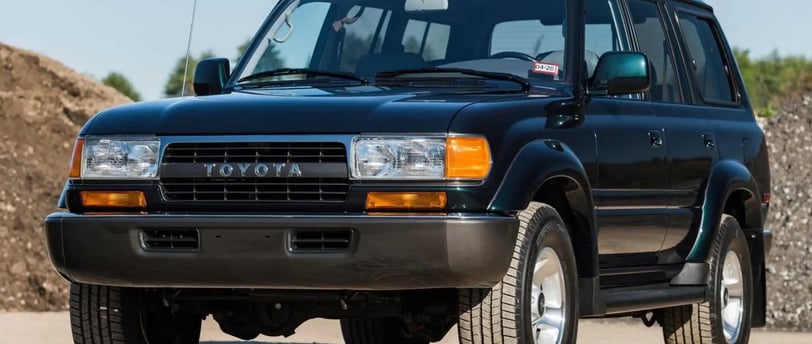The Short History of the Land Cruiser Series 80
The Toyota Land Cruiser 80 Series, launched in 1990, combined rugged off-road capabilities with modern comforts. With coil springs, solid axles, and a reliable engine, it became a favorite among adventurers. Though production ended in 1997, it remains a classic in the 4x4 world.
10/15/20242 min read


The Toyota Land Cruiser Series 80, first introduced in 1990, quickly became one of the most beloved and capable off-road vehicles in Toyota’s lineup. Often referred to as the “ultimate overlander,” the 80 Series struck the perfect balance between rugged performance and modern comfort, making it a favorite among adventure enthusiasts and collectors alike.
Origins and Launch (1990)
The 80 Series debuted in 1990, succeeding the 60 Series and elevating the Land Cruiser’s reputation as a go-anywhere, do-anything vehicle. Toyota designed it with versatility in mind, targeting both off-road adventurers and urban drivers who wanted more comfort without sacrificing durability. Its robust, boxy design became instantly recognizable.
Innovations and Features
One of the key innovations in the 80 Series was the introduction of coil spring suspension instead of the leaf springs found in older models. This change significantly improved ride comfort without compromising off-road capability. Additionally, Toyota incorporated solid front and rear axles, which were highly favored by serious off-roaders for their strength and durability on rough terrains.
The 80 Series also introduced full-time four-wheel drive (4WD) in some models, a feature that provided better handling and traction for both off-road and on-road driving. It was one of the first Land Cruisers to come equipped with luxury options, including leather seats, air conditioning, and advanced sound systems, making it as comfortable as it was rugged.
Engines and Performance
The Land Cruiser 80 Series was powered by a variety of engines depending on the market, including the 1FZ-FE 4.5L inline-six gasoline engine, which became famous for its durability and reliability. The diesel variants, particularly the 1HD-T turbo-diesel, were prized for their torque and fuel efficiency, especially in regions where diesel engines were preferred for off-road and expedition use.
Global Impact and Legacy
The Land Cruiser 80 Series was a global success, known for its reliability in harsh conditions. Whether tackling deserts, jungles, or mountain ranges, the 80 Series earned a reputation for being nearly indestructible. It became the vehicle of choice for UN aid agencies, governments, and overlanders worldwide due to its ability to handle the most extreme environments.
End of Production and Continuing Popularity
Production of the 80 Series ended in 1997, when Toyota introduced the 100 Series. Despite this, the 80 Series remains a favorite among off-road enthusiasts and overlanders, with many still being restored, modified, and driven across the globe today. Its timeless design and legendary durability have made it a cult classic in the world of 4x4s.
In summary, the Land Cruiser Series 80 stands out in Toyota’s history as a perfect blend of rugged capability and modern comfort. Its innovations in suspension, full-time 4WD, and engine reliability set it apart as one of the greatest off-road vehicles ever produced.


